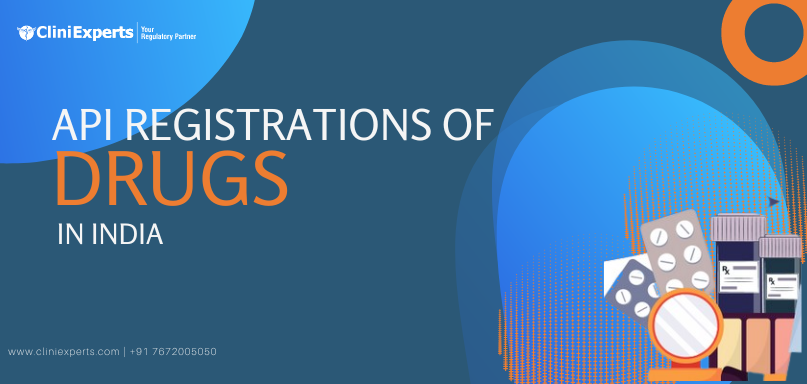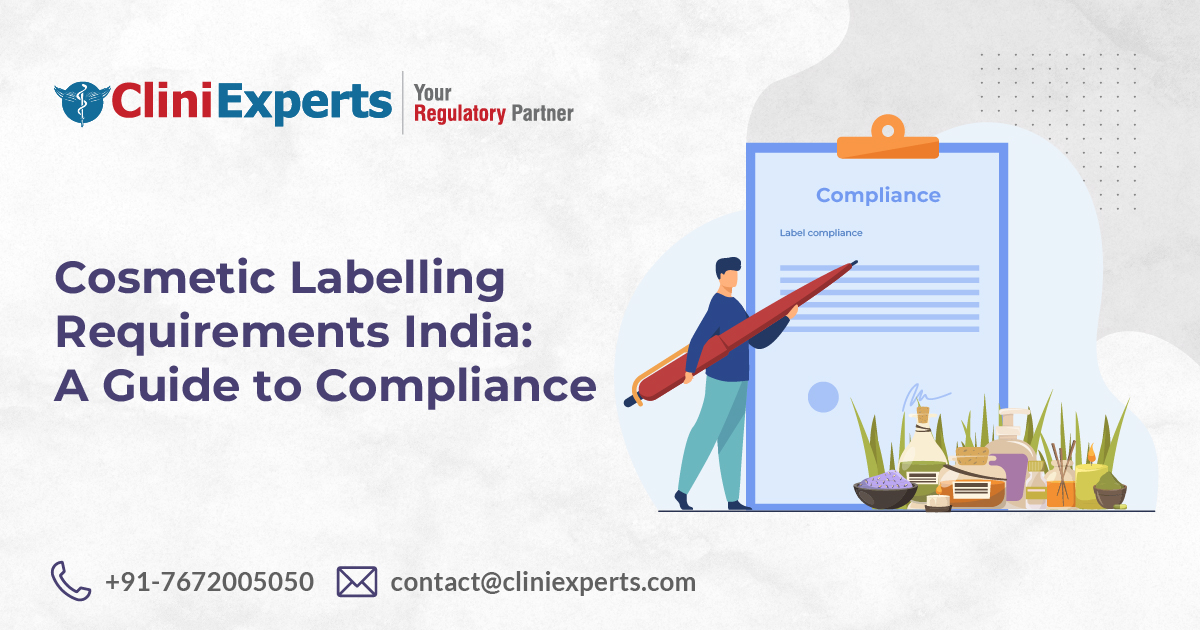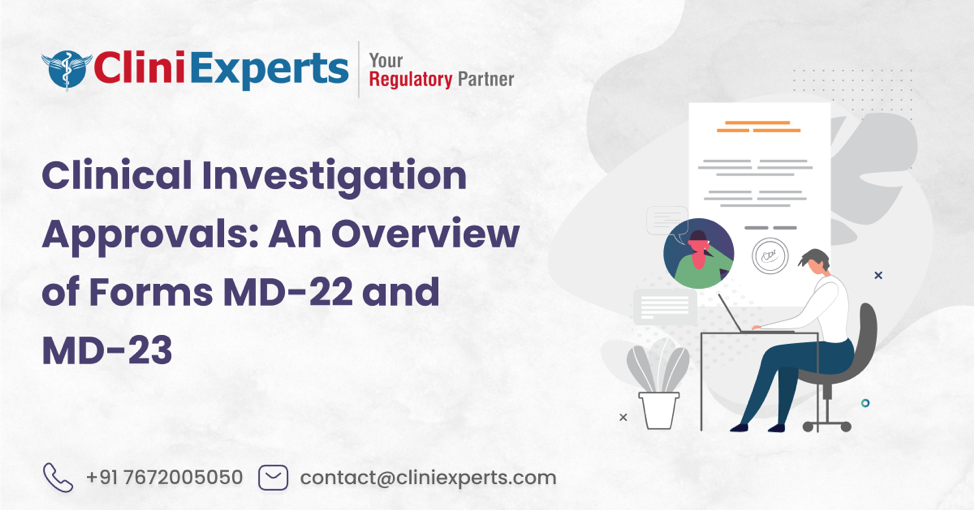API Registrations of Drugs In India

Active pharmaceutical ingredient (API) is defined as the component of a drug that is active biologically and is present in the tablet, injection, capsule, or cream and produces the intended health effect. It is used to manufacture drugs and, when manufactured, becomes an active ingredient. Majorly API is used as an active ingredient in high-quality drug formulations to treat diseases under the categories such as oncology, cardiology, pulmonology, gastroenterology, nephrology, ophthalmology, and endocrinology. To manufacture or import an API in India, one must get a license from DGCI. In the case of a foreign manufacturer, one must have an Indian agent appointed through Power of attorney (POA) in India. The CDSCO keeps updating the list of APIs so that it becomes easy for manufacturers or importers to classify if their drugs fall under the category of API. For any new drug which is yet to be introduced in the country, the manufacturer or importer shall conduct the clinical trials, collect the sample data and get the approval as per the process given in New Drugs and Clinical Trials Rule, 2019. Given below are the following rules which are mandatory for the API manufacturer or importer given under the Drugs and Cosmetics Act 1940 and Rules 1945 and New Drugs and Clinical Trials Rule, 2019:
| S. No. | Rule Number | Description |
| 1 | Rule 76 of NDCT 2019 | Import permission for New Drugs |
| 2 | Rule 80 of NDCT 2019 | Manufacturing Permission for New Drugs |
| 3 | Rule 2 (j) of NDCT 2019 | Definition of Clinical Trials |
| 4 | Rule 2 (w) of NDCT 2019 | Definition of Drugs |
Any new drug must undergo clinical trial testing to ensure that drugs are safe and will not cause harm or adverse reaction to the intended population. The phases of a clinical trial are given below:
- Pre-Clinical Study
- Phase I – Human Pharmacological Trail
- Phase II – Exploratory Trail
- Phase III – Confirmatory Trail
- Phase IV – Post-Marketing Trail
Forms required for API/Bulk drug manufacturing and import:
| Forms | Application/Approval | Description |
| Form CT-10 | Application | Application for permission to manufacture of new drug or investigational new drug for clinical trial or bioavailability and bioequivalence study or for examination, test and analysis |
| Form CT-11 | Permission | Permission to manufacture new drugs or investigational new drugs for clinical trial or bioavailability or bioequivalence study, or for examination, test and analysis |
| Form CT-12 | Application | Application for permission to manufacture formulation of unapproved active pharmaceutical ingredient for test or analysis or clinical trial or bioavailability and bioequivalence study |
| Form CT-13 | Application | Application for permission to manufacture unapproved active pharmaceutical ingredient for development of pharmaceutical formulation for test or analysis or clinical trial or bioavailability and bioequivalence study |
| Form CT-14 | Permission | Grant of permission to manufacture formulation of unapproved active pharmaceutical ingredient for test or analysis or clinical trial or bioavailability and bioequivalence study |
| Form CT-15 | Permission | Grant of permission to manufacture unapproved active pharmaceutical ingredient for development of pharmaceutical formulation for test or analysis or clinical trial or bioavailability and bioequivalence study |
| Form CT-16 | Application | Application for import of new drug or investigational new drug for clinical trial or bioavailability or bioequivalence study or for examination, test and analysis |
| Form CT-17 | Permission | Grant of licence for import of new drug or investigational new drug for clinical trial or bioavailability or bioequivalence study or for examination, test and analysis. |
| Form CT-18/CT-21: | Application | Application for permission to import/manufacturer new drug for sale or distribution |
| Form CT-19: | Permission | Grant of permission for import of new drugs for sale or distribution |
| Form CT-22: | Permission | Manufacturing raw material (new bulk drug substance) |
| Form 40 | Application | Application for issue of Registration Certificate for import of drugs into India under the Drugs and Cosmetics Rules 1945 |
| Form 41 | Permission | Registration Certificate to be issued for import of drugs into India under Drugs and Cosmetics Rules, 1945 |
| Form 8 | Application | Application for license to import drugs |
| Form 10 | Permission | License to import the drugs |
Conclusion: A drug’s safety and efficacy depend on its API quality. An API manufactured poorly or unsafe can cause harmful consequences such as infection, death, or adverse reaction. That’s why it is essential to regulate the API, and one must adhere to the regulations if planning to manufacture or import the API.
Recent Posts
Organic Food Labelling In India| Certification, and Import of Organic Food in India

This Article is All About Organic Food Labelling In India and Certification, and Import of Organic Food in India. Explained in Detail About What is Organic Food labelling? Summary Short Description Wi..
Cosmetic Label Compliance India : A Guide to Compliance

Introduction Looking for Cosmetic Label Compliance India? Are you a cosmetic manufacturer or importer navigating the complex world of Indian regulations? Ensuring your product labels comply with the l..
Clinical Investigation Approvals: An Overview of Forms MD-22 and MD-23

Summary Short Description Strict regulatory protocols govern clinical investigations for medical devices. Central to this process are forms MD-22 and MD-23. Form MD-22 is an application to Central Lic..
HAVE A QUERY?
REACH US!Office
New Delhi
Unit No. 324 & 325, City Centre Mall, Plot No. 5, Sector 12, Dwarka, India - 110075
+917672005050
Bengaluru
RMZ Galleria, 1st floor, Ambedkar Colony, Yelahanka, Bengaluru, Karnataka, India – 560064
Call us on
Sales: +91 7672005050
Reception: +91-11-45214546
Timings
9 am to 6 pm (Monday to Friday)


